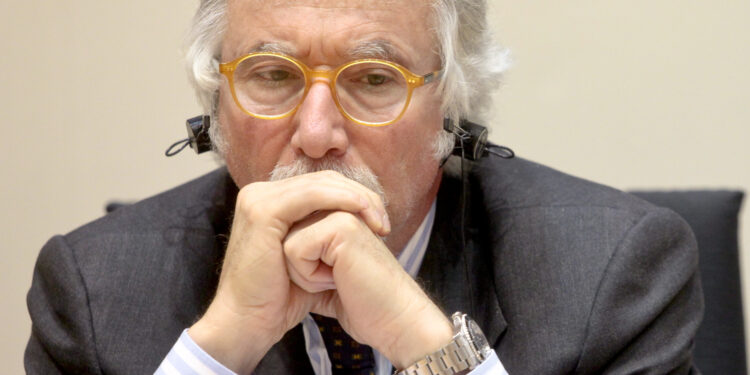Brussels – A former Italian MEP from the European People’s Party has been finally condemned by the Court of Justice of the EU to pay €250,000 for fraud against the European Parliament. At the centre of the audits by the Parliament’s anti-fraud office (OLAF) was the fictitious hiring of a parliamentary assistant and the payment of sums to a company, of which the assistant was the sole partner.
OLAF opened the file against Crescenzio Rivellini (FI/EPP), who was present in Brussels from 2009 to 2014 in the Popular Party. The EU’s anti-fraud office investigated the hiring of his parliamentary assistant, given the €25,000 claimed as reimbursement for expenses and the absence of documents proving her work, and the over €220,000 claimed for the execution of so-called “controversial contracts”.
These contracts were allegedly stipulated with a company that would provide services to Rivellini during his tenure. Too bad that the company had as its only partner his assistant, who, by the way, was also the MEP’s historical partner, as he wrote in his book (“Bianca Maria D’Angelo was for ten years the partner of my life,” to quote an excerpt).
“European-style Bonnie and Clyde” were discovered by OLAF and the former MEP was condemned by the EU Court of Justice. Rivellini would have never provided any evidence of D’Angelo’s actual employment, exploiting the alleged lack of clarity of a parliamentary assistant’s duties.
The former EPP member sought to overstep the rules of the Statute for Members of the European Parliament, which stipulates the need also to justify expenses for staff employed by MEPs. The Luxembourg judges clarified that “the Member must in particular produce supporting documents relating to the activities of the Parliamentary Assistant and, therefore, retain them, and this even in the absence of an explicit obligation.”
Rivellini attempted to prove that D’Angelo had a badge to enter. Still, again the Court disallowed his argument, ruling that “the mere physical presence of the parliamentary assistant on the premises of the Parliament […] cannot be sufficient to prove the actual performance of duties.” In addition, D’Angelo did not even reside in Brussels when she theoretically would have engaged in daily work in Parliament.
Regarding companies, the Statute of MEPs specifies that there should be no conflict of interest. Rivellini attempted to contest the relationship between him and D’Angelo, despite the book that said otherwise and that the CJEU could use as evidence. Quite an own goal for the former MEP, who wrote in black and white his self-disclosure and the presence of an obvious conflict of interest.
In addition, the validity of the payments made was never proven by the Parliament, lacking “notifications (from Parliament) certifying the regularity of the payments made under the ‘disputed contracts'” and evidence that the payments were related to the contracts signed. As a result, the €220,000 was not entitled to any
reimbursement from Parliament.
Hence came the condemnation of Rivellini and the compensation claim. Ironically, during his European mandate, Rivellini was part of the Budgetary Control Committee, responsible for verifying European funds’ transparency and efficient management and maintaining close relations with the anti-fraud office.
English version by the Translation Service of Withub





